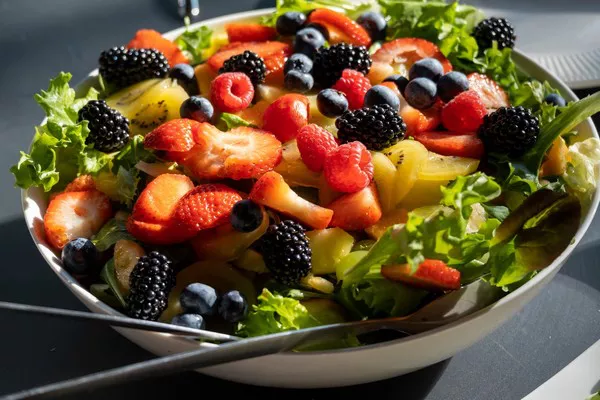After a workout, it’s crucial to refuel your body with the right nutrients to aid in recovery and optimize performance. Fruits are an excellent post-workout option due to their natural sugars, vitamins, minerals, and antioxidants. In this article, we will explore the best fruits to eat after a workout, focusing on their specific benefits and how they contribute to post-exercise recovery. From promoting muscle repair to replenishing energy stores, we’ll cover a range of fruits that can enhance your post-workout nutrition.
Understanding Post-Workout Nutrition
Before we delve into specific fruits, it’s essential to understand the importance of post-workout nutrition and its impact on recovery. Here are some key points:
Muscle Recovery:
After exercise, the body needs nutrients to repair and rebuild muscles. Adequate nutrition supports muscle protein synthesis and glycogen replenishment.
Glycogen Replenishment:
Exercise depletes glycogen stores, the body’s primary source of energy during physical activity. Consuming carbohydrates after a workout helps replenish glycogen levels.
Antioxidant Support:
Intense exercise can produce free radicals, which can contribute to oxidative stress and inflammation. Antioxidants from fruits help combat these effects.
Bananas: A Natural Energy Booster
Bananas are a popular choice among athletes and fitness enthusiasts due to their nutrient profile and portability. Here’s why they are an excellent post-workout fruit:
Carbohydrate Content:
Bananas are rich in easily digestible carbohydrates, making them ideal for replenishing glycogen stores and providing an energy boost.
Electrolyte Balance:
Bananas contain essential electrolytes like potassium, which helps restore electrolyte balance and prevent muscle cramps.
Vitamin B6:
This vitamin aids in protein metabolism and supports the production of energy, which is beneficial for post-workout recovery.
Berries: Antioxidant Powerhouses
Berries, such as blueberries, strawberries, raspberries, and blackberries, are packed with antioxidants and offer several benefits for post-workout recovery:
Anti-Inflammatory Effects:
Berries contain potent antioxidants that help reduce exercise-induced inflammation and oxidative stress, promoting faster recovery.
Vitamin C:
Berries are rich in vitamin C, which supports collagen synthesis, tissue repair, and immune function.
Fiber Content:
Berries are high in fiber, which aids in digestion, promotes satiety, and helps regulate blood sugar levels.
Citrus Fruits: Vitamin C and Hydration
Citrus fruits, including oranges, grapefruits, and lemons, offer a refreshing and nutrient-rich option for post-workout consumption. Consider their benefits:
Vitamin C:
Citrus fruits are renowned for their high vitamin C content, which supports immune function, collagen synthesis, and iron absorption.
Hydration:
Citrus fruits have high water content, helping to rehydrate the body after exercise and replace fluids lost through sweat.
Natural Electrolytes:
Citrus fruits contain electrolytes like potassium, magnesium, and calcium, which aid in rehydration and maintaining electrolyte balance.
Pineapple: Bromelain for Muscle Recovery
Pineapple is a tropical fruit known for its sweet flavor and unique enzyme called bromelain. Here’s why it’s a beneficial post-workout choice:
Bromelain Benefits:
Bromelain has anti-inflammatory properties that help reduce exercise-induced muscle damage and support faster recovery.
Digestive Aid:
Bromelain aids in digestion by breaking down proteins, potentially reducing post-workout digestive discomfort.
Manganese and Vitamin C:
Pineapple is a good source of manganese, which supports connective tissue health, and vitamin C, which aids collagen synthesis and immune function.
Watermelon: Rehydration and Muscle Soreness
Watermelon is a hydrating and refreshing fruit that offers unique benefits for post-workout recovery. Consider its advantages:
Hydration Support:
Watermelon has high water content, making it an excellent choice for rehydrating the body after exercise.
L-Citrulline:
Watermelon is a natural source of L-citrulline, an amino acid that helps reduce muscle soreness and improve exercise performance.
Electrolytes:
Watermelon contains electrolytes like potassium and magnesium, which aid in rehydration and muscle function.
Timing and Pairing with Protein
To optimize post-workout nutrition, it’s essential to consider timing and pairing fruits with protein. Here are some key points to keep in mind:
Timing:
Consume fruits within 30 minutes to an hour after your workout to replenish glycogen stores and kickstart the recovery process.
Protein Pairing:
Pair fruits with a source of protein, such as Greek yogurt, cottage cheese, or a protein shake, to support muscle repair and synthesis.
Whole-Food Sources:
Opt for whole-food protein sources to provide a complete range of amino acids and additional nutrients alongside fruit.
Conclusion
Choosing the right fruits for your post-workout nutrition can significantly impact your recovery and overall fitness goals. Incorporating fruits like bananas, berries, citrus fruits, pineapple, and watermelon provides a range of benefits, from replenishing energy stores to reducing inflammation and aiding in muscle recovery. Remember to pair fruits with a protein source and consume them within the appropriate time frame to maximize their benefits. Ultimately, a well-rounded post-workout nutrition plan, including the incorporation of these fruit options, will help optimize your performance, recovery, and overall well-being.
Related topics:


